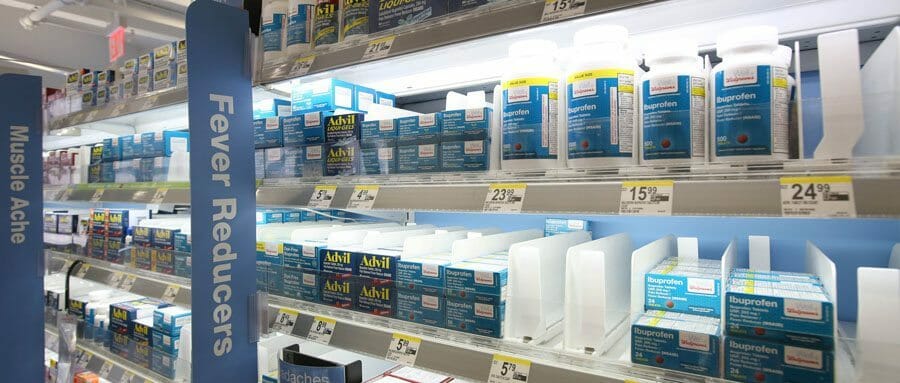Premium Hemp Products

Hidden deep within the NY Times, an article that should have been front page news was placed. News like this, when it affects millions, if not tens of millions, of people should be easily found.
Earlier this month, the FDA issued a Drug Safety Communication that strengthens it’s position that Nonsteroidal anti-inflammatory drugs (NDSAIDs) have been shown to INCREASE the risk of a heart attack and/or stroke. Until this warning, only prescription NSAIDs were required to print on their labels the warning of the increased risk in strokes and heart attacks. Moving forward, OTC products will be required to include this warning.
If you are taking NSAIDs and are experiencing symptoms like chest pain, shortness of breath/trouble breathing, weakness in one side/part of the body, or slurred speech, contact a medical professional immediately.
In Addition To Gastro-Intestinal Issues
Intestinal permeability, or leaky-gut syndrome, has been a major issue for many who take prolonged doses of NSAIDs, like ibuprofen. This is especially true of those who take ibuprofen after exercising.
A 2012 National Institutes of Health study concluded that NSAIDs caused intestinal inflammation and intestinal permeability changes (i.e., leaky gut) were “significantly more pronounced.”
Strenuous exercise often results in minor stress to the small intestine, and, when combined with copious NSAID consumption, can aggravate these minor stresses into full-on dysfunction.
Search For A Natural Alternative
For those who are not privy, aspirin is a chemical knock-off of nature, the white willow bark to be exact. The willow bark contains a plant compound called salicin. American Indians chewed on the inner bark of the willow to reduce fevers and pain, and has been said to possibly help with menstrual cramps and arthritis.
According to the abstract on US Patent 6630507:
Cannabinoids have been found to have antioxidant properties, unrelated to NMDA receptor antagonism. This new found property makes cannabinoids useful in the treatment and prophylaxis of wide variety of oxidation associated diseases, such as ischemic, age-related, inflammatory and autoimmune diseases. The cannabinoids are found to have particular application as neuroprotectants, for example in limiting neurological damage following ischemic insults, such as stroke and trauma, or in the treatment of neurodegenerative diseases, such as Alzheimer’s disease, Parkinson’s disease and HIV dementia. Nonpsychoactive cannabinoids, such as cannabidoil, are particularly advantageous to use because they avoid toxicity that is encountered with psychoactive cannabinoids at high doses useful in the method of the present invention. A particular disclosed class of cannabinoids useful as neuroprotective antioxidants is formula (I) wherein the R group is independently selected from the group consisting of H, CH.sub.3, and COCH.sub.3. ##STR1##
Hemp source cannabinoid rich oils, according to the ‘507 patent holders (The United States of America as represented by the Department of Health and Human Services), may prove to be a viable alternative to potentially dangerous NSAIDs. Much more research needs to be done in this field, and we are looking forward to seeing the results of such testing.
*These statements have not been evaluated by the FDA and are not intended to diagnose, treat or cure any disease. Always check with your physician before starting a new dietary supplement program